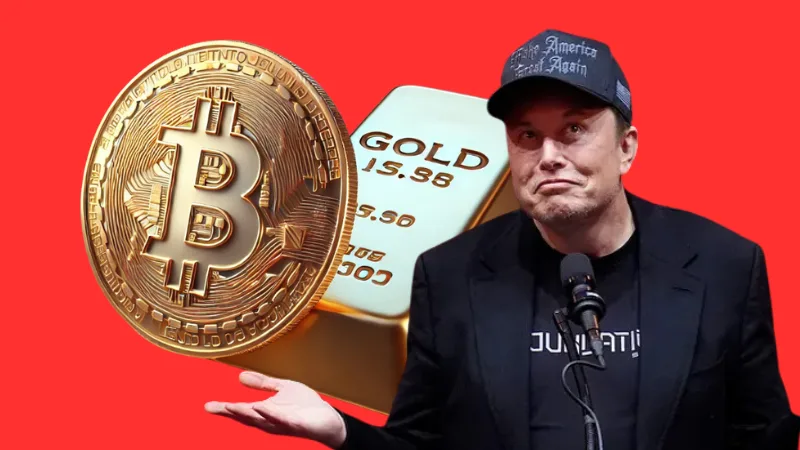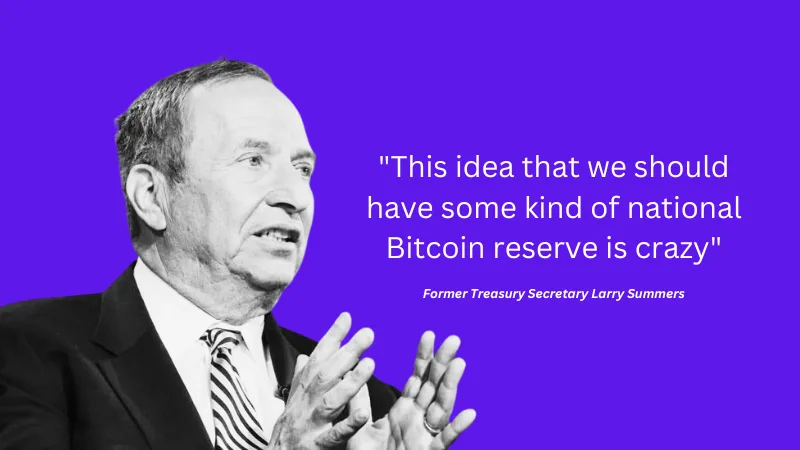In recent financial discussions, Tesla CEO Elon Musk, a leading figure in tech and finance, has issued stern warnings about the economic challenges facing the United States. This time, Musk has gone as far as labeling the current financial landscape as a “financial emergency.” With a national debt reaching an unprecedented $35.7 trillion, he argues that the situation is unsustainable, placing the nation’s fiscal stability and the future of the global economy at risk. Notably, Musk’s sentiments, coupled with a resurgent interest in bitcoin and gold, suggest we may be on the brink of a significant shift in investment trends, with cryptocurrency standing out as a potential hedge.
The Growing Debt Crisis and Interest Payments
As of the start of 2024, the U.S. national debt surpassed $34 trillion, attributed primarily to the pandemic-era stimulus spending and economic measures. These efforts, while essential for immediate relief, have long-lasting repercussions, particularly as rising interest rates have caused the cost of servicing this debt to soar. Musk emphasized these concerns in a recent campaign event, stating, “Just the interest payments on the debt are 23% of all federal tax revenue…now exceeding the Defense Department budget.” This alarming figure underscores his perspective on the pressing need for fiscal reform.
To put this in perspective, the annual interest payment alone has reached $1 trillion, a figure that, without corrective measures, will only grow as interest rates remain high. This issue is not only draining federal resources but also stoking inflation fears—a sentiment shared by Musk and other prominent investors who view the spiraling debt as a “debt bomb” that could trigger economic upheaval.
Bitcoin and Gold: Hedges Against a Currency Crisis?
The financial crisis Musk alludes to has prompted a renewed interest in traditional safe-haven assets like gold, which recently hit an all-time high. But equally compelling is the rise of bitcoin, which many investors, including Musk, see as “digital gold.” According to Bank of America analysts, the U.S. debt load is expected to increase at an accelerated pace, potentially adding $1 trillion every 100 days. As government debt balloons and inflationary pressures mount, the likelihood of bitcoin’s price surging grows stronger. Bitcoin has returned to levels near its peak of $70,000 per bitcoin, rising alongside gold as investors increasingly view cryptocurrency as a hedge against fiscal instability.
In a historic endorsement of bitcoin this week, Musk echoed sentiments similar to those made by legendary investor Paul Tudor Jones, who famously called bitcoin the “fastest horse to beat inflation.” Jones, an early proponent of bitcoin as a hedge against inflation, reinforced this belief in a recent interview with CNBC, declaring, “all roads lead to inflation,” and revealing that he is “long gold” and “long bitcoin.”
The Role of Tesla in the Crypto Market
Tesla remains one of the major corporate bitcoin holders, with approximately 10,000 bitcoin valued at nearly $800 million on its balance sheet. Although Tesla recently moved its bitcoin holdings to new wallets, which stirred rumors about a possible sale, the company appears committed to its investment. This move highlights Musk’s confidence in bitcoin’s long-term potential and Tesla’s strategic alignment with cryptocurrency as an inflation hedge.
Could the Political Climate Influence Bitcoin’s Trajectory?
In addition to his financial warnings, Musk has actively supported former President Donald Trump’s return to office, suggesting that the Trump administration’s economic policies align with his vision for addressing the nation’s debt crisis. The shift in leadership could indeed impact how fiscal policies evolve in the coming years, with Trump’s pro-crypto stance potentially accelerating bitcoin adoption and favorable regulatory changes.
Yet, the debate is far from one-sided. Vice President Kamala Harris’s fiscal plan, projected to increase the deficit by an additional $600 billion annually, has drawn scrutiny from both Musk and Paul Tudor Jones, who doubt its sustainability in light of the national debt’s exponential growth. Jones expressed skepticism about the promises of both parties, viewing each proposal as further fueling inflation and jeopardizing long-term financial stability.
How This Affects Investors Today
Given the uncertainties in the economy, investors are increasingly looking toward assets less tethered to traditional financial systems. Bitcoin, often dubbed “digital gold,” has re-emerged as a viable option. However, gold, a classic safe-haven asset, is also attracting significant attention from investors wary of the stock market’s volatility and currency fluctuations. Many financial experts suggest a balanced approach, combining investments in both gold and bitcoin to hedge against potential economic downturns effectively.
Bitcoin’s finite supply—only 21 million coins will ever be created—alongside the growing inflationary pressures, creates a compelling case for the cryptocurrency as an alternative to traditional currency. However, some experts warn of its inherent volatility, encouraging investors to exercise caution and diversify their portfolios.
Conclusion: The Future of Bitcoin and Gold in a Debt-Heavy Economy
The escalating debt crisis in the U.S. raises crucial questions about the future of the dollar and the financial system as a whole. Musk’s warning about a “financial emergency” echoes the concerns of other high-profile investors who are bracing for inflation and further dollar devaluation. With prominent investors like Paul Tudor Jones aligning themselves with assets like bitcoin and gold, a pattern emerges—one that signals a potentially unprecedented shift in how individuals and corporations safeguard their wealth.
As bitcoin continues to inch toward its previous highs, the question remains: could this new wave of economic instability create the perfect storm for bitcoin to truly rival gold as a safe-haven asset? For now, the answer appears to lie in how the U.S. government tackles its mounting debt and the role of inflation in shaping future fiscal policies.
By remaining informed and prepared, investors can better navigate these turbulent times, considering bitcoin, gold, and other alternative assets as potential hedges in an era of fiscal uncertainty.





